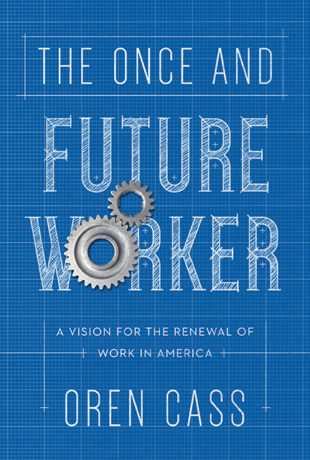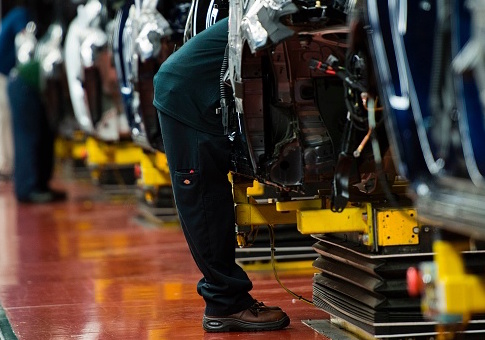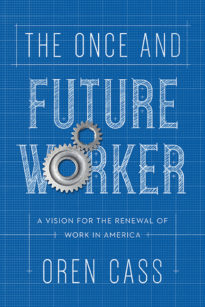American public policy has lost its way. Since the middle of the last century, it has chased national economic growth, expecting that the benefits would be widely shared. Yet while gross domestic product tripled from 1975 to 2015, the median worker’s wages have barely budged. Half of Americans born in 1980 were earning less at age thirty than their parents had made at that age. Millions of people have dropped out of the labor force entirely.
The primary response to the failure of gross domestic product (GDP) growth to lift all boats has been a dramatic increase in economic redistribution. Since 1975, total spending on the safety net has quadrupled. Yet the average poverty rate in the 2010s was higher than it was in the 1990s, which in turn had a higher rate than the 1970s. Analysts debate whether upward mobility has merely stalled or sharply fallen, but no one claims that it has improved. Meanwhile, families and even entire communities have collapsed; addiction has surged; life expectancy is now falling.
Rather than reversing course, policy makers wait expectantly for rescue to arrive from an education system that can transform those left behind into those getting ahead. If this were readily available, it would indeed help ease the growing crisis—and, for that matter, solve any number of society’s problems— but no such miracle appears imminent. Despite the nation doubling per-pupil spending and attempting countless education reforms, test scores look no better than they did forty years ago. Most young Americans still do not achieve even a community college degree.
With good reason, then, confidence in national institutions has eroded. Most Americans have felt the country is on the wrong track since even before the late-2000s financial crisis struck. Most Americans expect that the next generation will be worse off than themselves. Outsider candidates across the political spectrum, most notably, of course, Bernie Sanders and Donald Trump, have gained huge followings that would have seemed inconceivable only a few years earlier, simply by observing that we are in fact lost—no matter that their own road maps are flawed in important ways. Even residents of the most prosperous and cloistered enclaves are discovering that, in a democracy, a miserable majority is everyone’s problem.
This book explains where we went offtrack and how we might turn around. Its argument, at its most basic, is that work matters. More specifically, it offers what I will call the Working Hypothesis: that a labor market in which workers can support strong families and communities is the central determinant of long-term prosperity and should be the central focus of public policy.
Alongside stable political institutions that protect basic freedoms, family and community provide the social structures necessary to a thriving society and a growing economy. Those institutions in turn rely on a foundation of productive work through which people find purpose and satisfaction in providing for themselves and helping others. The durable growth that produces long-term prosperity is the emergent property of a virtuous cycle in which people who are able to support their families and communities improve their own productivity and raise a subsequent generation able to accomplish even more. Conversely, without access to work that can support them, families struggle to remain intact or to form in the first place, and communities cannot help but dissolve; without stable families and communities, economic opportunity vanishes.
So while economic growth and rising material living standards are laudable goals, they by no means guarantee the health of a labor market that will meet society’s long-term needs. If we pursue growth in ways that erode the labor market’s health, and then redistribute income from the winners to the losers, we can produce impressive-looking economic statistics—for a while. But we will not generate the genuine and sustainable prosperity that we want. Growth that consumes its own prerequisites leads inevitably to stagnation.
Regrettably, neither political party has genuinely concerned itself with work for decades. Politicians on all sides talk incessantly about “good jobs,” but the policies they pursue speak louder. What a coincidence that cutting taxes and shrinking government, expanding health care entitlements and fighting climate change, all were jobs programs as well.
Republicans have generally trusted that free markets will benefit all participants, prized the higher output associated with an “efficient” outcome, and expressed skepticism that political actors could identify and pursue better outcomes, even if any existed. Their labor-market policy could best be described as one of benign neglect.
Democrats, by contrast, can sound committed to a more worker-centric model of growth, but rather than trusting the market too much, they trample it. The party’s actual agenda centers on the interests advanced by its coalition of labor unions, environmentalists, and identity groups. Its policies rely on an expectation that government mandates and programs will deliver what the market does not. This agenda inserts countless regulatory wedges that aim to improve the conditions of employment but in the process raise its cost, driving apart the players that the market is attempting to connect. Better market outcomes require better market conditions; government cannot command that workers be more valuable or employment relationships be more attractive, but by trying, it can bring about the reverse.
The economic landscape is pocked with the resulting craters. Starting in the 1960s and 1970s, payroll taxes and workplace rules directly and substantially raised the cost of employing lower-wage workers. Aggressive environmental regulation reduced investment in industrial activity and thus the demand for workers whose advantage lay in relatively more physical work, while the education system’s obsession with college for all left many students ill prepared to join the labor force at all. A system of organized labor that once helped broaden prosperity began instead to hoard it for a dwindling membership, at everyone else’s expense. Our immigration system increased the supply of low-wage workers available to employers by millions, while free trade increased the supply by billions—to the advantage of those seeking to use such labor, but not to those seeking to provide it. All the while, an ever-expanding safety net provided more benefits to a rising share of the population, reducing work’s economic and social value.
The problem is not so much that public policy has failed as that it has succeeded at the wrong things. America is like the classic romantic-comedy heroine who, as the trailer intones, “had it all, or so she thought.” She has the prestigious job and the elegant apartment, yet she is not happy. She has pursued the wrong goals, she discovers, and to reach them, she sacrificed the things that mattered most.
We got exactly what we thought we wanted: strong overall economic growth and a large GDP, rising material living standards, a generous safety net, rapid improvements in environmental quality, extraordinarily affordable flat-screen televisions and landscaping services. Yet we gave up something we took for granted: a labor market in which the nation’s diverse array of families and communities could support themselves. This was, I will argue, the wrong trade-off, based on incorrect judgments about policies’ true costs and benefits and a poor understanding of what we were undermining. What we have been left with is a society teetering atop eroded foundations, lacking structural integrity, and heading toward collapse.








